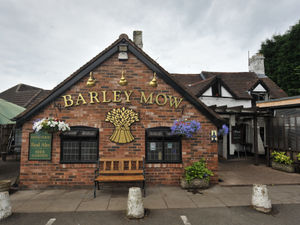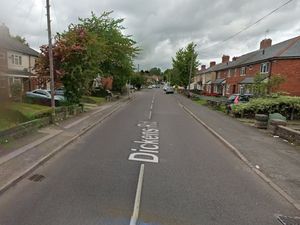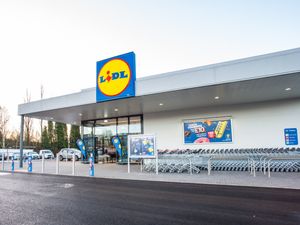I was 'stabbed to death at a teenage party' - but thankfully I could take my virtual reality helmet off afterwards
The knife was plunged into my chest. It did not hurt, yet I could see by the horror on my friends' faces that something catastrophic was happening.
Watch more of our videos on ShotsTV.com
and on Freeview 262 or Freely 565
I would be dead within five minutes - enough time to tell everyone around me to tell my mum I loved her.
Game over. And then I took my helmet off. I had a second chance at life, but my virtual reality foray into teenage life had ended as badly as it possibly could have.
This is the latest development in the war against knife crime: virtual reality.
It comes after more than a decade of cuts to youth services and child mental health provision which has seen 12- and 13-year-olds landing themselves in Black Country courts and A&E wards due to knife crime.
It's clear that a drastic new approach is needed to prevent yet more young lives being wrecked by blades.
Birmingham-based Cornerstone VR enlisted child psychologists, scriptwriters, teenage actors, police officers and former social and youth service workers to get their latest VR experience aimed at highlighting the dangers of carrying a knife.
The knife crime and serious youth violence virtual reality world could be the most important yet for the company, which is part of the Antser Group.
With the frontal lobe of teenage brains yet to fully form there can be a lack of empathy displayed by young people, as well as decisions made without considering consequences. However, this is where virtual reality can help and educate.
Marrying the medical world with the latest technology
I was invited to be the first journalist to step into the virtual reality world created to cut crime.
Cornerstone wants to marry the medical world with the latest technology to provide "award-winning behavioural change solutions".
The knife crime series is not its first series, rather the culmination using all the successes of more than three years' work.
I did not just begin my ill-fated time in virtual reality as a teenager, but hours earlier as an unborn child in the womb.
One place where I thought I would be safe is the womb, however it has been proven babies can experience trauma in the womb.
Wearing the VR headset was a vast improvement from the last time I wore one, when it was basically a Samsung phone strapped into a plastic helmet - this was fully immersive. When I turned round, I was in a 360-degree universe.
I could hear my mother's heartbeat, reassuringly regular. But then I heard a voice. An angry man's voice. I immediately felt vulnerable. And then he started to hit my mother, who I'm still a part of. I could not escape. I could not fight him, I was enraged as I could hear the blows rain down on her and prayed he would not kick her stomach. The video only lasted minutes but it felt like hours.
The NHS showed nurses who dealt with pregnant women the same video. After experiencing what I did, over the next year they reported more cases of domestic violence. Before they would just ask expectant mothers the question, and tick a box if they said no, but after watching the video, they pushed further. The scheme won an award for the best use of technology in the entire NHS.
The next time I entered the VR world I was on the floor, in a bit of a kip of a flat, strewn with drug paraphernalia. I turned all the way around to take in my new surroundings. A woman I presumed was my mother was on the settee gouching from the gear, and I was left to my own devices until, you guessed it, an angry man entered the room. He towered over my mum, but from my viewpoint he looked like a giant. Again I felt vulnerable.
This video was shown to social workers, and again increased empathy. There were more videos as I fast-forwarded through the life of a youngster who had been dealt a bad hand before being born, being bullied at school and then getting violently mugged at a bus stop.
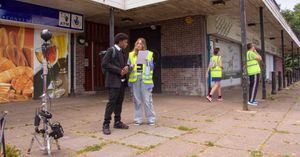
Cornerstone VR head of operations and practice, Serena Hadi, a former social worker, has seen how virtual reality can change the attitudes of professionals like teachers, social workers, nurses and police officers.
She told the Express & Star: "All of our previous VR films when shown to professionals, empowered them to be more trauma responsive, empathetic, and aided them in understanding the impact trauma has had on children’s lives through to adolescence."
"Nurses, social workers, police officers, lawyers, teachers and many other people including parents and carers having used the Unborn Child and Carnaby Street in training, have reported these to be impactful."
She added: "Our new VR films, focusing on knife crime, have been created alongside experts dedicated to improving the lives of young people and children. Teenagers are disproportionally affected by knife crime more than any other age group. Research has shown virtual reality videos and scenarios have a bigger impact on changing people's behaviours and values than other kinds of information and training.'
"We aim to change the narrative around knife crime and raise awareness of why children and young people may feel compelled to pick up a knife in today's society."
She added: "Nurses really responded to the womb video, and social workers were shown the video of the toddler in cot. Police officers, lawyers, teachers and lots of other people have seen our videos. And parents too."
"Ultimately, we want every child in the country to have access to this."
I had a sense of deja vu when attending the virtual reality party as I was invited to the filming of the pivotal scene, though teenage house parties are the same the world over. One knock at the door can ruin everything if an unwanted bigger guest turns up drunk and angry.
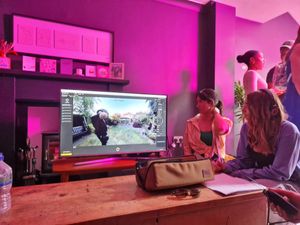
This time, in a storyline which would be familiar with every teenager, the argument started online and became very real, very quickly. I'd seen the stabbing being filmed several times, each time with the director demanding more from his teenage actor until they got the perfect performance.
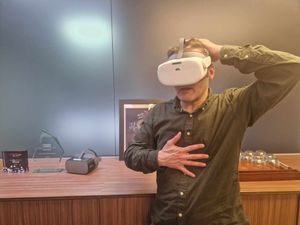
So although I knew what was going to happen, being the victim was very different.
The name-calling quickly became a scuffle, which suddenly became a challenge, which seconds later became a knife plunged into my chest. The feeling of helplessness and inability to prevent the outcome I knew was coming was overwhelming - I had to take my helmet off.
I had that luxury. Sadly, too many teenagers will never get a second chance at life, because of knife crime.

